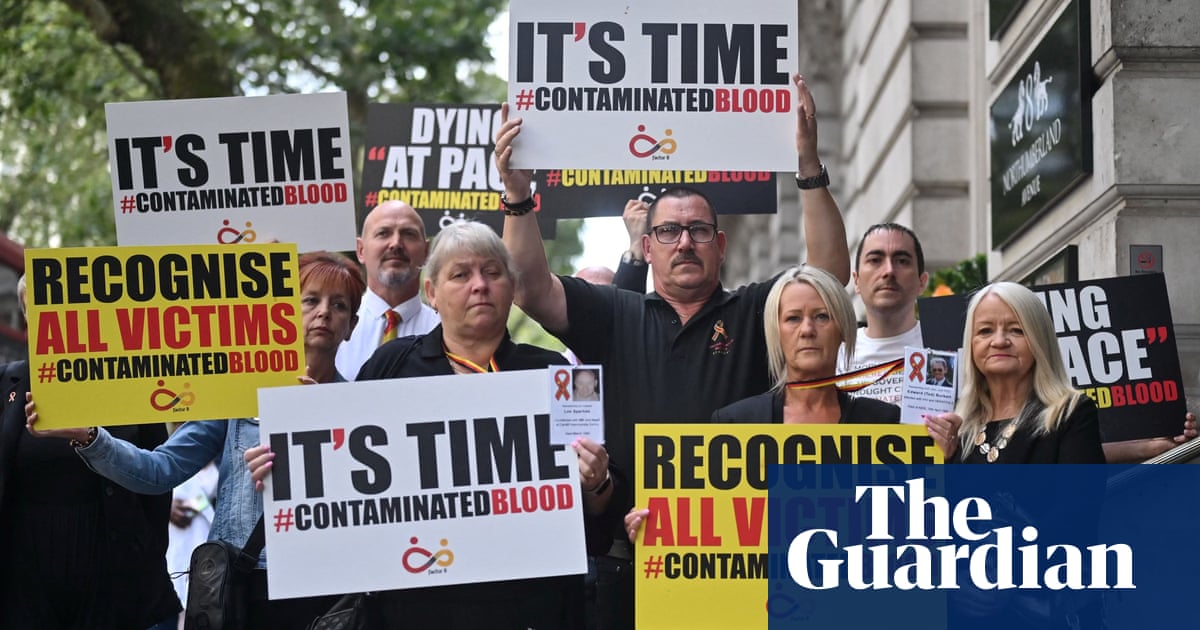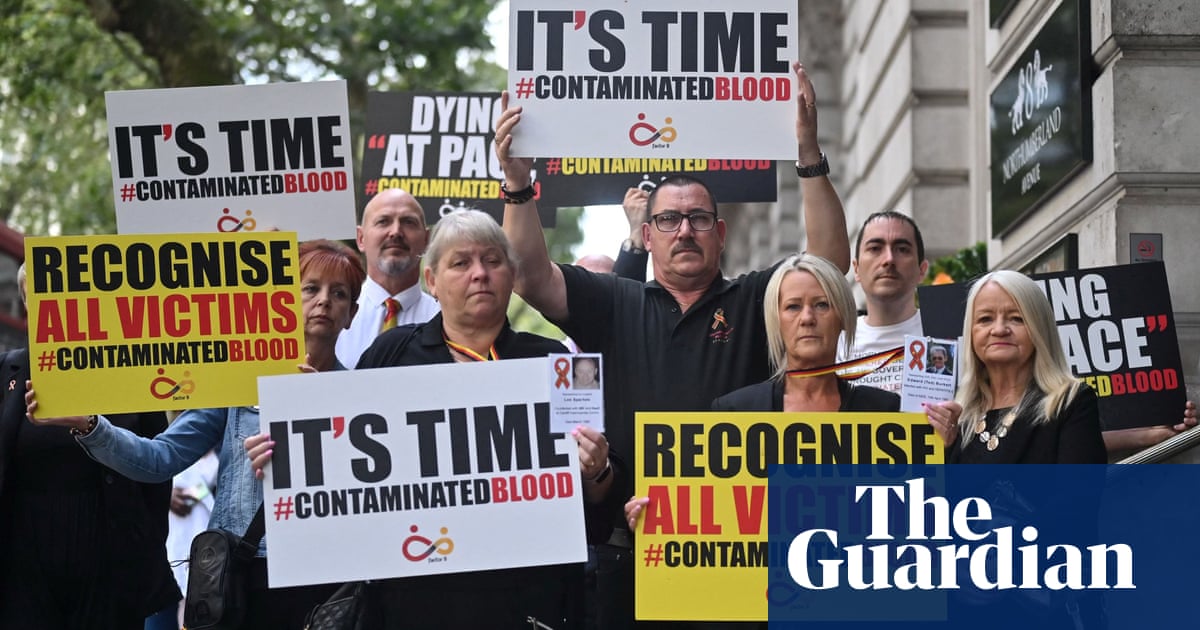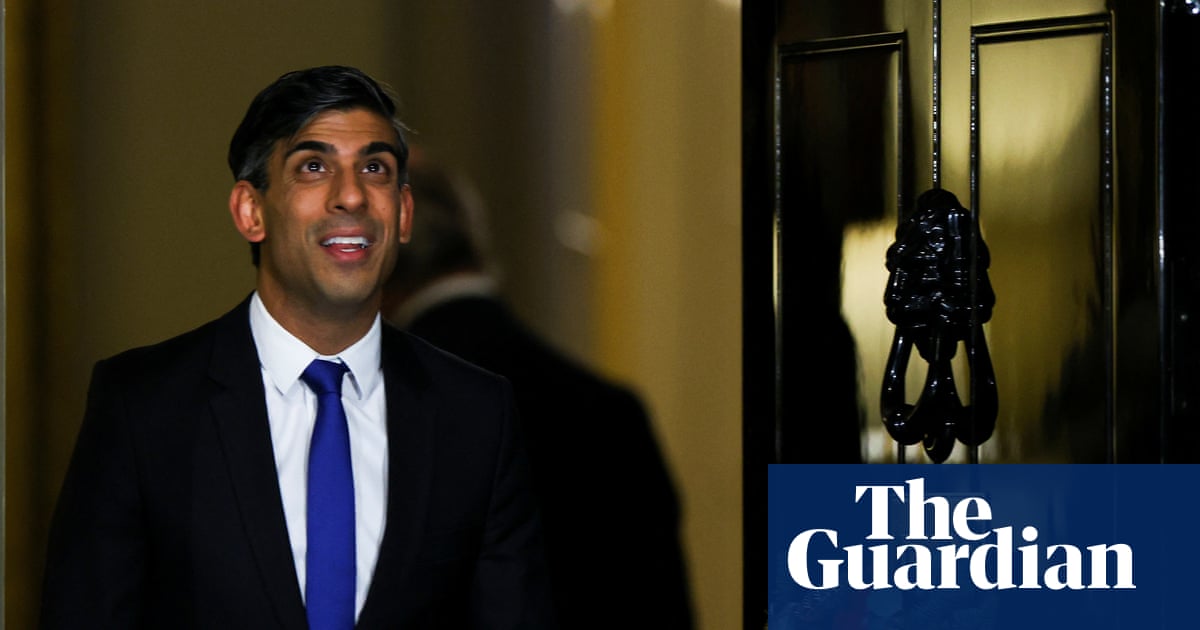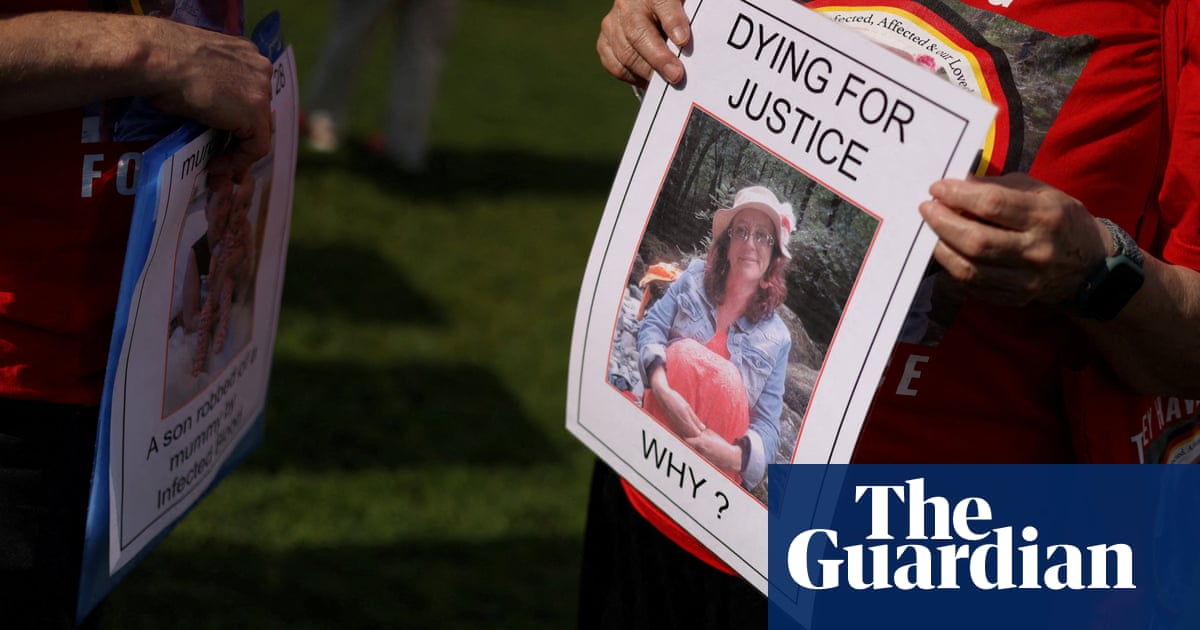
Victims and family members have expressed frustration and dismay with Rishi Sunak for not committing to a compensation framework for those affected by the contaminated blood scandal.
Before the prime minister’s appearance on Wednesday at the public inquiry into the unparalleled treatment disaster, there were protests by campaigners carrying photos of bereaved loved ones and banners saying: “Dying for Justice.”
They were hoping Sunak would shift the government’s position that a compensation framework will be set up at when the inquiry’s final report is published, which runs contrary to the chair’s exhortation for urgent payments.
However, after listening to his evidence, punctuated by occasional heckling, many present were left underwhelmed.
Robert James, 56, a haemophiliac who believes he was infected with HIV and hepatitis C as a child, although he was only later diagnosed, said: “It was awful, it was an awful lot of nothing. He repeatedly said the same things that didn’t answer questions.
“It strikes me this is simply a delaying tactic [waiting till the final inquiry report]. How long can we wait without doing anything and in the hope that maybe a general election comes and it’s another government’s problem?”
James, from Brighton, also criticised Sunak’s response when the counsel to the inquiry, Jenni Richards KC, read parents’ accounts of the loss of their children to contaminated blood. The government has yet to compensate bereaved parents or children despite the recommendation by the inquiry chair, Sir Brian Langstaff.
James said: “I find it staggering that a man who has children – and he mentioned that – could listen to the stories of those parents whose children were infected with HIV, died of Aids in front of them, knowing that they have received nothing, only to say, ‘Well, they’ve just got to wait, wait until I decide or my government decides what it’s going to do.’ That is appalling.”
Among those who have not received compensation is Jason Evans, the founder of the Factor 8 campaign, whose father died after receiving contaminated blood.
He said: “The struggle we face is not merely for compensation, but for recognition, for acknowledgment of the immeasurable loss endured. It is heartrending that our plea appears to be echoing in what seems to be an empty hall of power. Prime minister Sunak has the authority and the opportunity to make a difference, but today he let that opportunity pass by.
“It’s been over three months since the inquiry’s recommendations were published. Each day without action is another day of suffering for the victims and their families. Each day without action further distances us from the justice that is long overdue.”
He said the overriding emotions were of “profound disappointment, dismay, and a sense of deepening sorrow”, adding: “Regrettably, the prime minister offered neither new information nor commitments to the victims and bereaved families of the infected blood scandal.”
Rachel Halford, the chief executive of the Hepatitis C Trust, said: “More than three months have passed since Sir Brian Langstaff recommended that a compensation scheme for those affected by the contaminated blood scandal be set up and begin work this year. But listening to the evidence from Rishi Sunak and other senior politicians this week, we are no clearer about when this will happen and what the government plans to do next despite their insistence otherwise.”
Langstaff received a round of applause from the audience after he made a powerful intervention, directly addressing Sunak at the conclusion of his evidence. The inquiry chair told the prime minister that while he had recognised past wrongs, those affected “will be looking I suspect for yet further tangible recognition. They recognise the evidence they have heard this week of work being done but there aren’t any details. There is no timeline, there is no structure yet in place.”
Langstaff urged Sunak to do anything he could “to reassure them, preferably by actions rather than by words – but either will do – actions preferably, that there will be the compensation which is just and fair and it will be delivered as soon as possible. Because if it troubles my conscience I would think it would trouble the conscience of a caring government, and you have said that’s what you would wish to be.”










